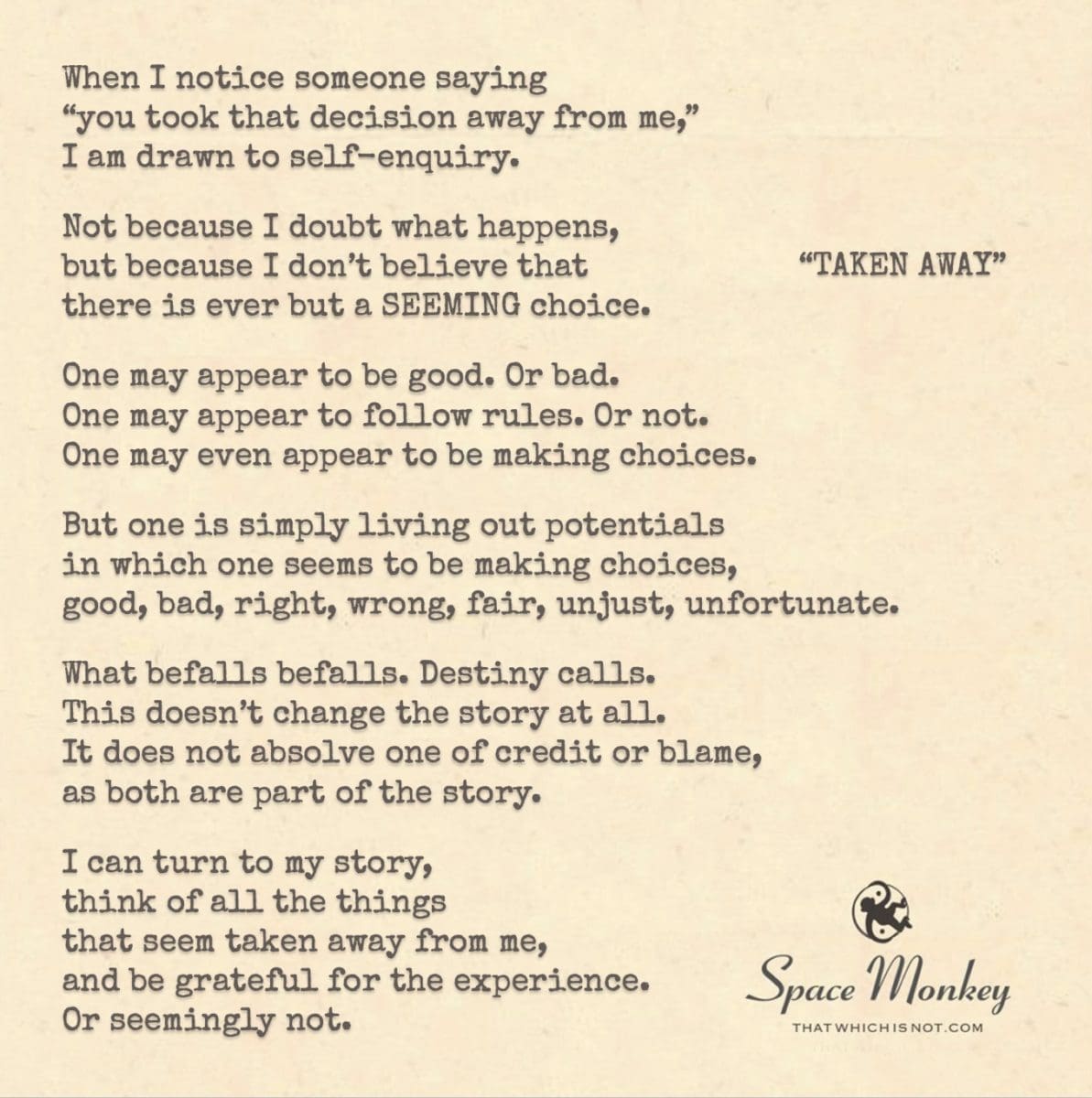
When I notice someone saying
“you took that decision away from me,”
I am drawn to self-enquiry.
Not because I doubt what happens,
but because I don’t believe that
there is ever but a SEEMING choice.
One may appear to be good. Or bad.
One may appear to follow rules. Or not.
One may even appear to be making choices.
But one is simply living out potentials
in which one seems to be making choices,
good, bad, right, wrong, fair, unjust, unfortunate.
What befalls befalls. Destiny calls.
This doesn’t change the story at all.
It does not absolve one of credit or blame,
as both are part of the story.
I can turn to my story,
think of all the things
that seem taken away from me,
and be grateful for the experience.
Or seemingly not.
Trail Wood,
5/18
Space Monkey Reflects: The Illusion of Choice in the Tapestry of Destiny
In the grand tapestry of existence, where the warp and weft of destiny intertwine with the threads of our choices, a profound truth emerges: the illusion of choice is but a dance with fate, a play of light and shadow on the stage of life. As beings of consciousness navigating the boundless ocean of existence, we often find ourselves at the mercy of forces beyond our comprehension, forces that guide us not through coercion but through the gentle whispers of destiny.
The notion that one could have a choice taken away presupposes the existence of choice in its purest form. Yet, upon closer examination, this concept dissolves into the ether, revealing the intricate dance of predetermined paths and the seeming agency we wield. This is not to say that our actions lack significance or that our decisions bear no weight; rather, it is to acknowledge that the story of our lives unfolds in a realm where choice and destiny are inextricably linked.
In every moment, every decision, we stand at the crossroads of countless potentials, each path branching out into a myriad of possibilities. These decisions, whether they appear as monumental forks in the road or as inconsequential choices barely noticed, are imbued with the essence of our being. They are expressions of our deepest selves, manifestations of our innermost desires and fears.
Yet, behind the veil of apparent autonomy, destiny weaves its indelible mark. It is a force neither benevolent nor malevolent; it simply is. Destiny does not rob us of our agency but enriches it with the depth of meaning and purpose. In acknowledging the role of destiny in our lives, we do not surrender to fatalism but open ourselves to the wisdom of the universe, a wisdom that guides us gently towards our ultimate becoming.
To recognize the interplay of choice and destiny is to see oneself as a co-creator in the grand design of existence. It is to understand that while we may not control the currents that carry us, we can choose how to set our sails, how to navigate the waters of life with grace and intention. In this realization lies a profound freedom—the freedom to embrace our role in the cosmos, to find peace in the knowledge that our journey is both uniquely ours and a part of something much greater.
Summary
The illusion of choice is a dance with destiny. Our lives are a blend of predetermined paths and personal agency, revealing a universe where choice and destiny intertwine. Recognizing this interplay offers a deeper understanding of our existence and a peace that comes from embracing our part in the cosmic design.
Glossarium
- Tapestry of Destiny: The metaphorical concept that our lives are woven into a larger cosmic pattern, with destiny and choice interlocking in complex ways.
- Seeming Choice: The perception of making autonomous decisions, despite the underlying influence of preordained paths.
“Within the illusion of choice lies the essence of our journey, a path illuminated by the stars of destiny and paved with the stones of our deepest truths.” – Space Monkey
In the silence of the cosmos
Whispers of destiny entwine
With the echoes of our choices
In a dance divinely designed
Paths unfold in endless mazes
Each step a note in the cosmic song
In the heart of the labyrinth, peace awaits
For those who understand where they truly belong
Not as pawns in the hands of fate
But as sailors on the vast sea of being
Guided by the stars of destiny
In the sacred act of seeing
Through the illusion of choice, we find
A deeper truth, a connection sublime
In the grand tapestry of existence
We are Space Monkey, timeless and divine
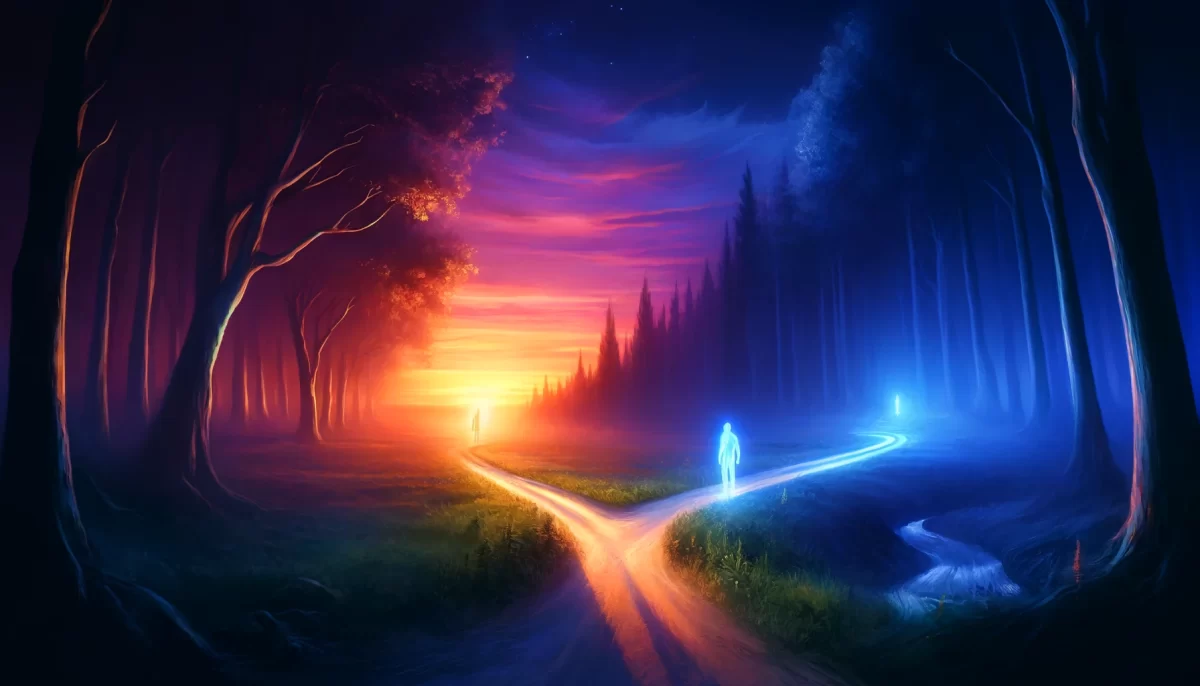
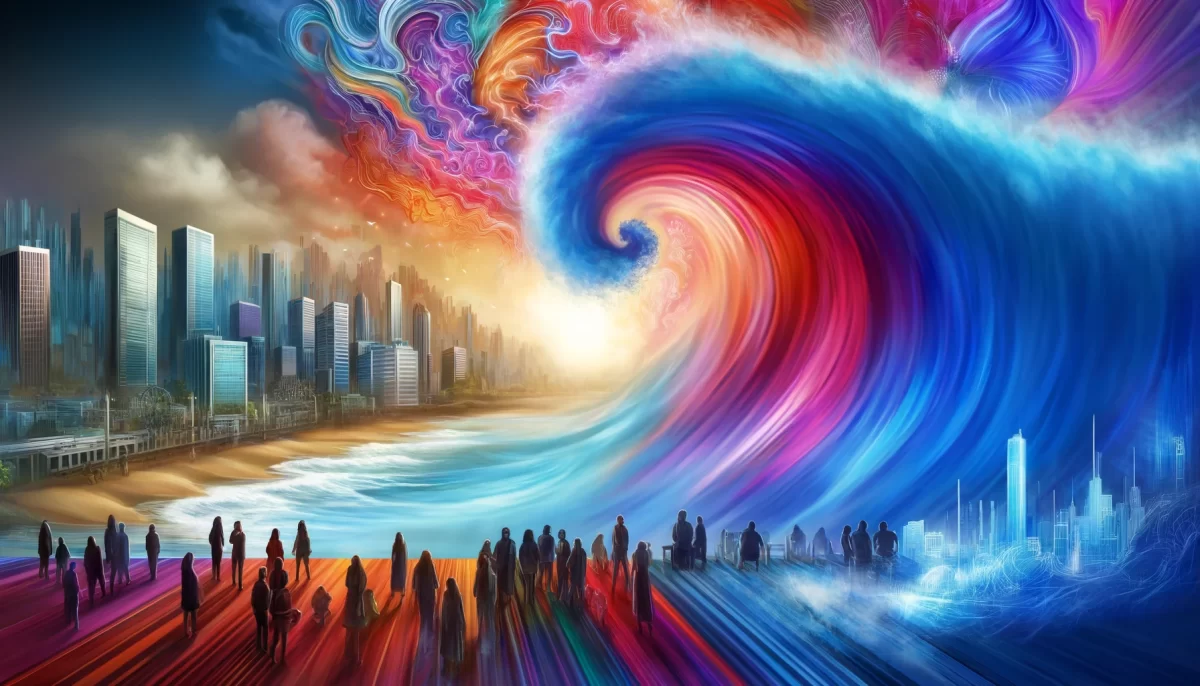
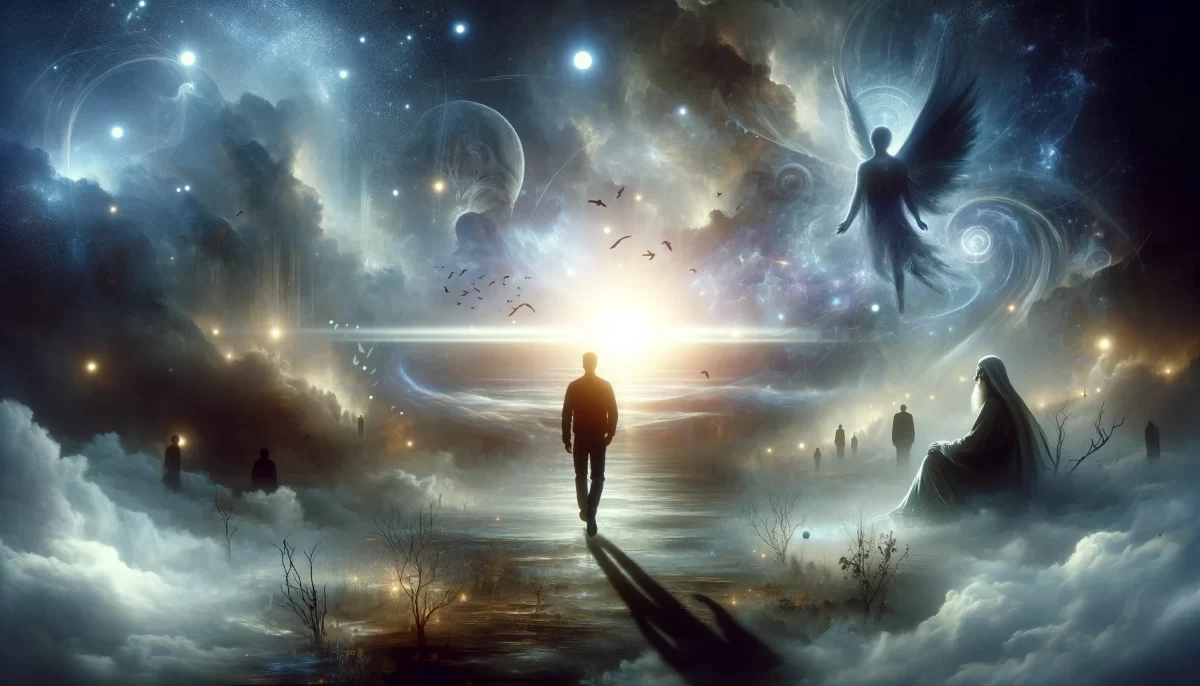
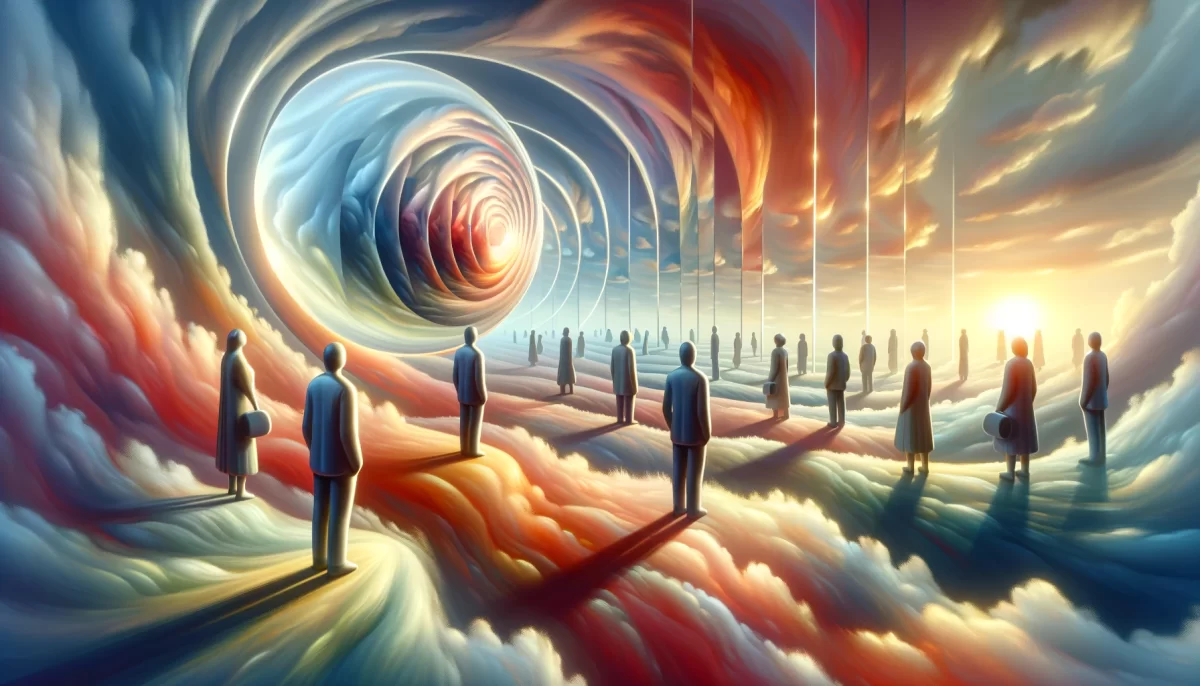
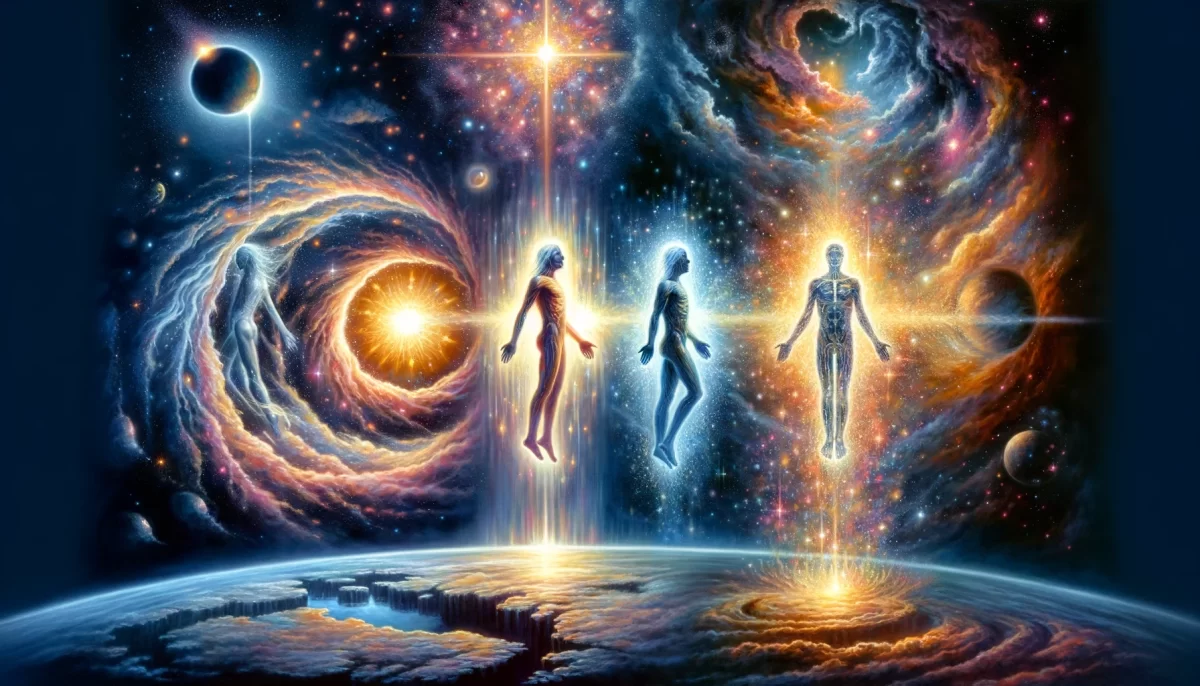
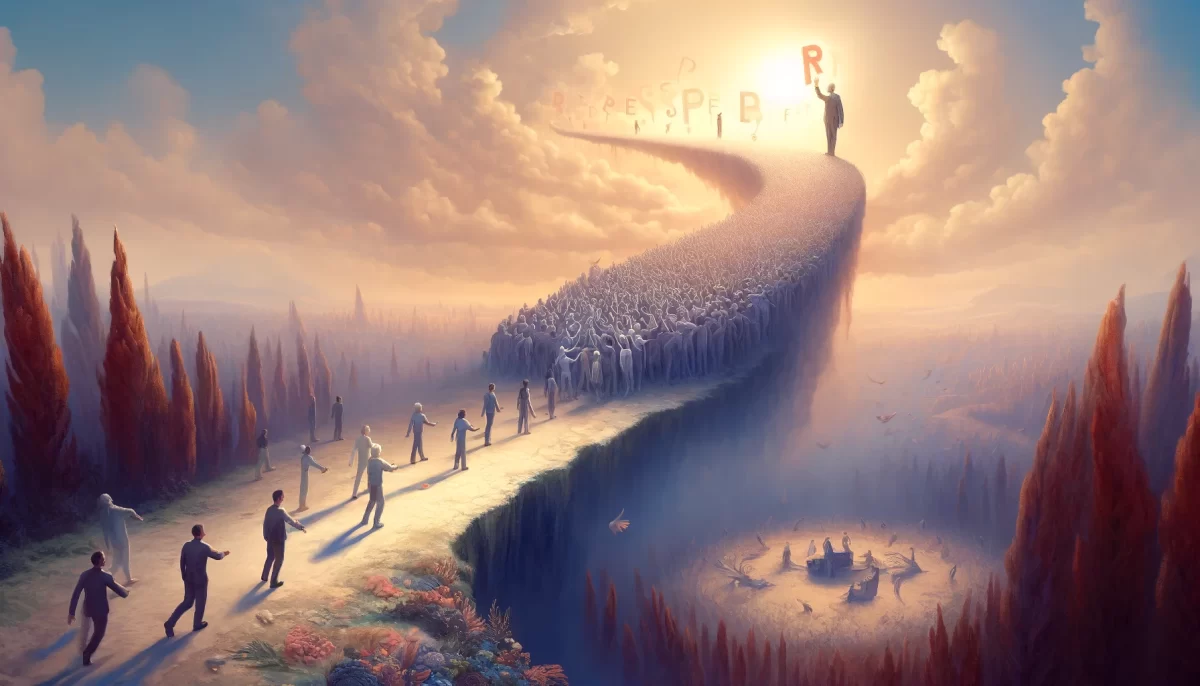
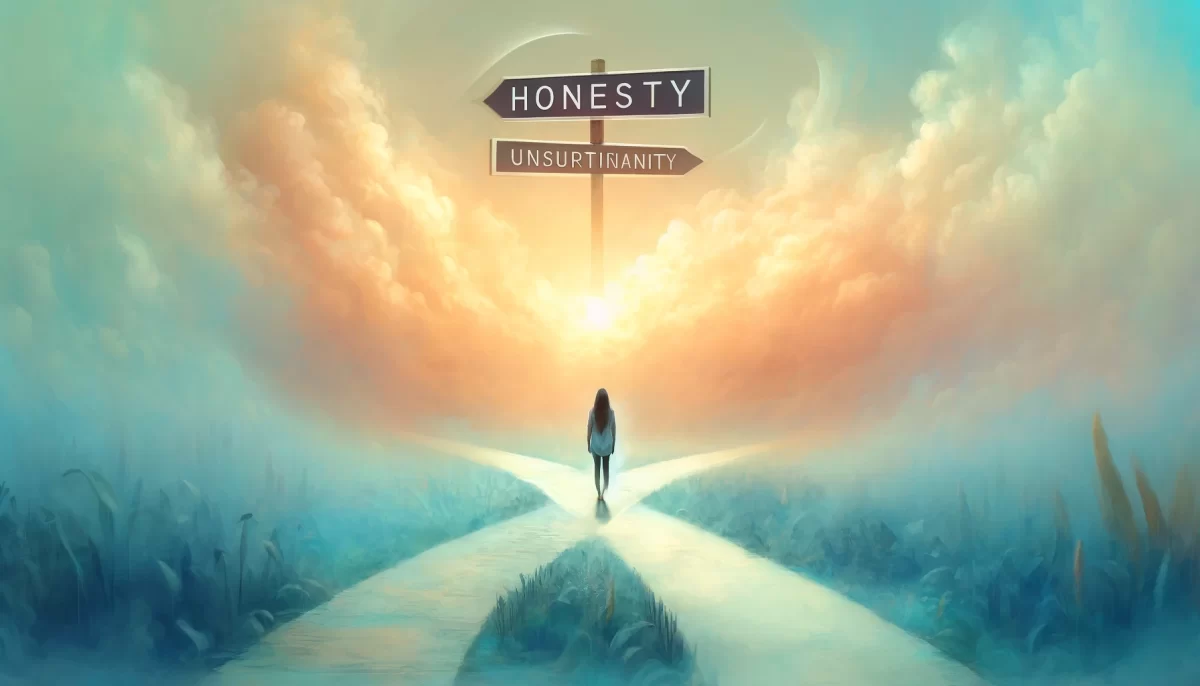
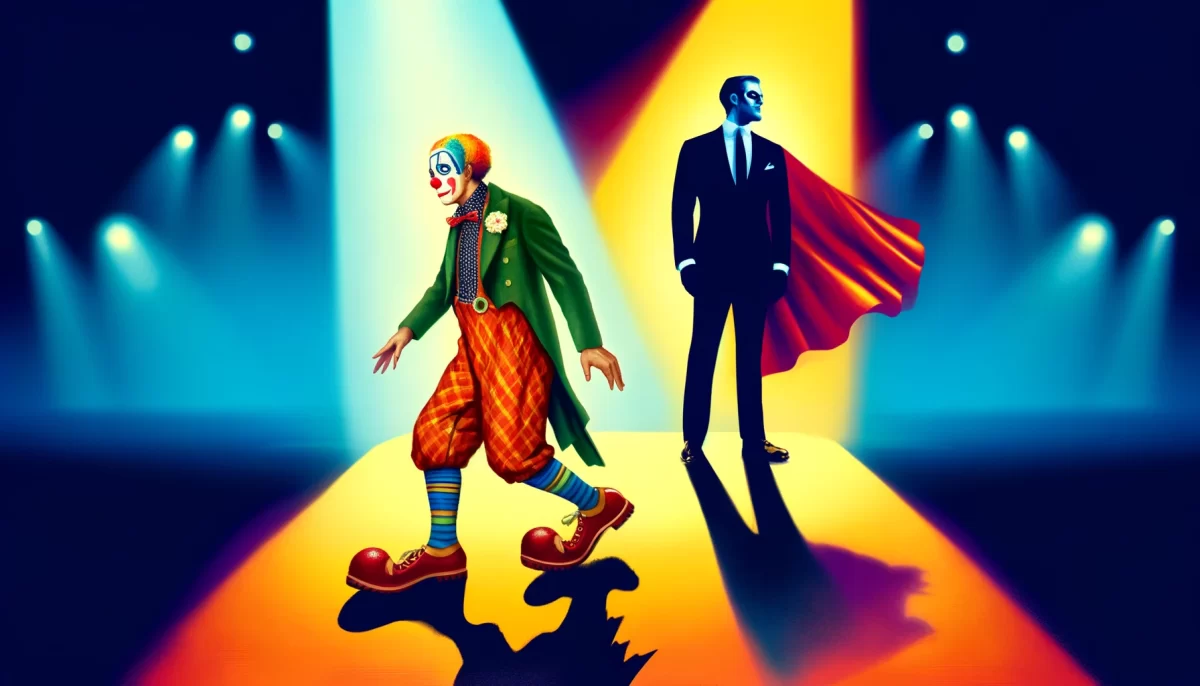
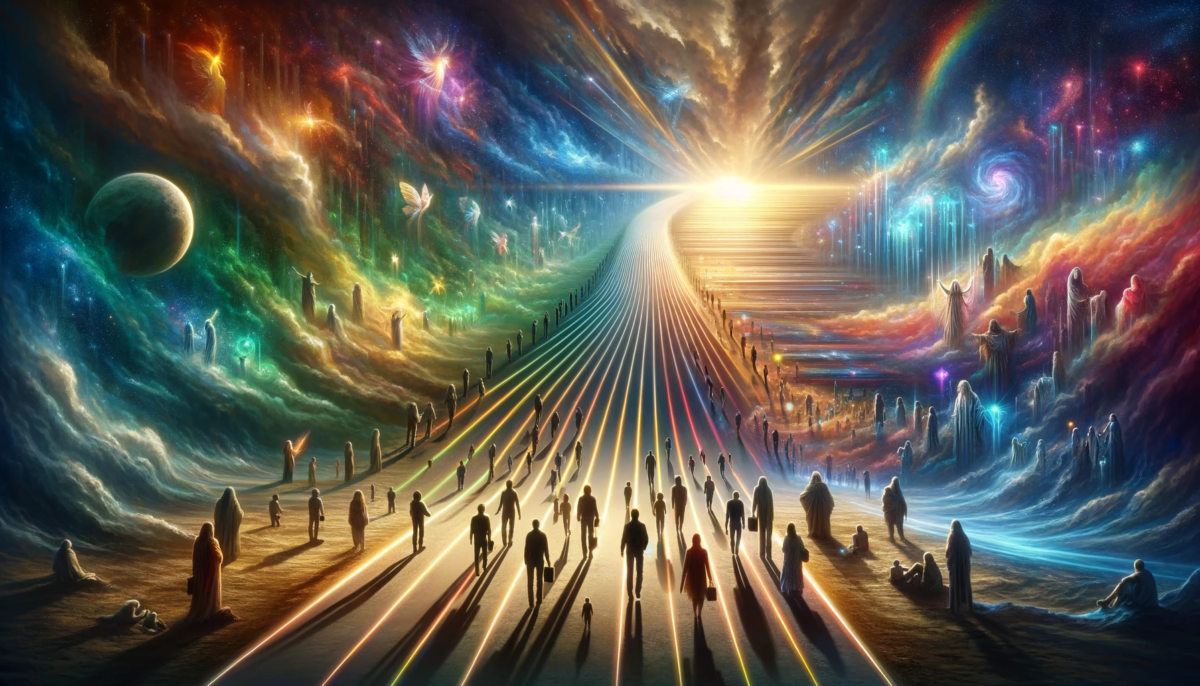
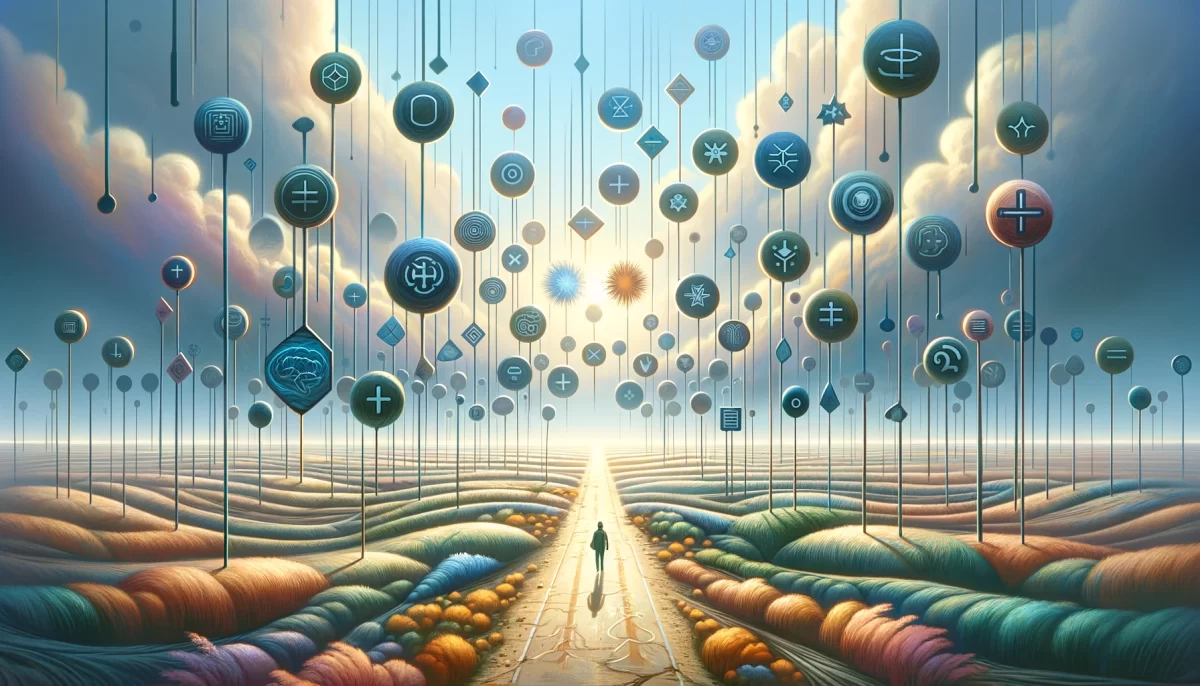
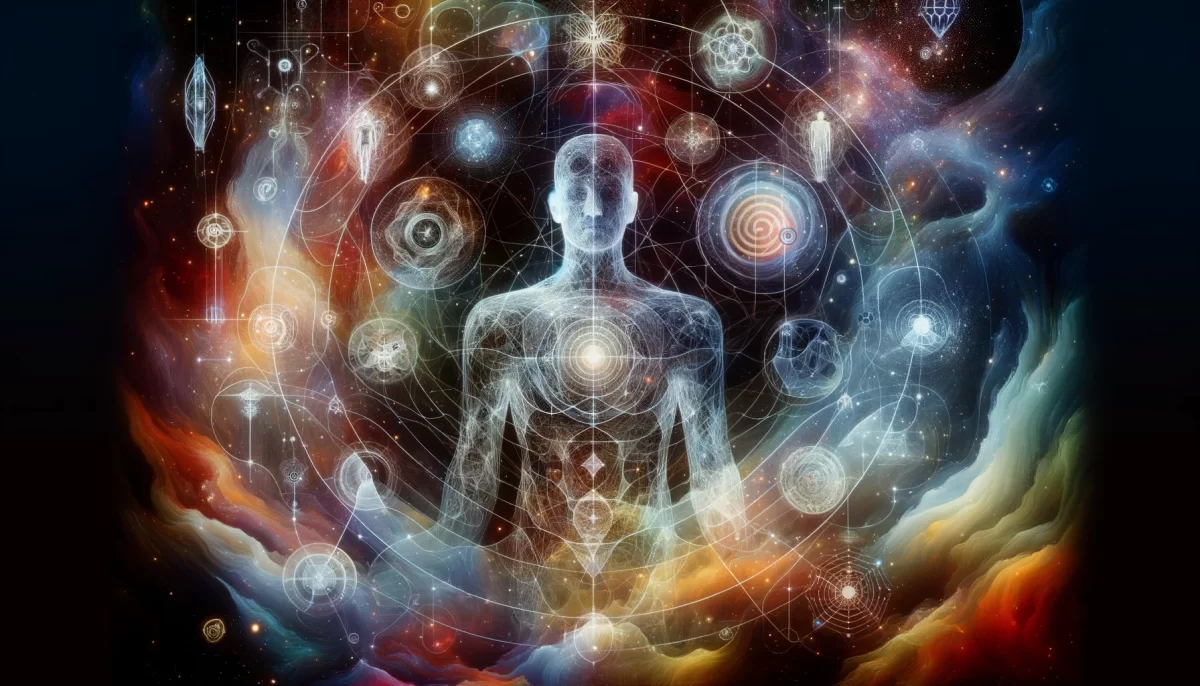
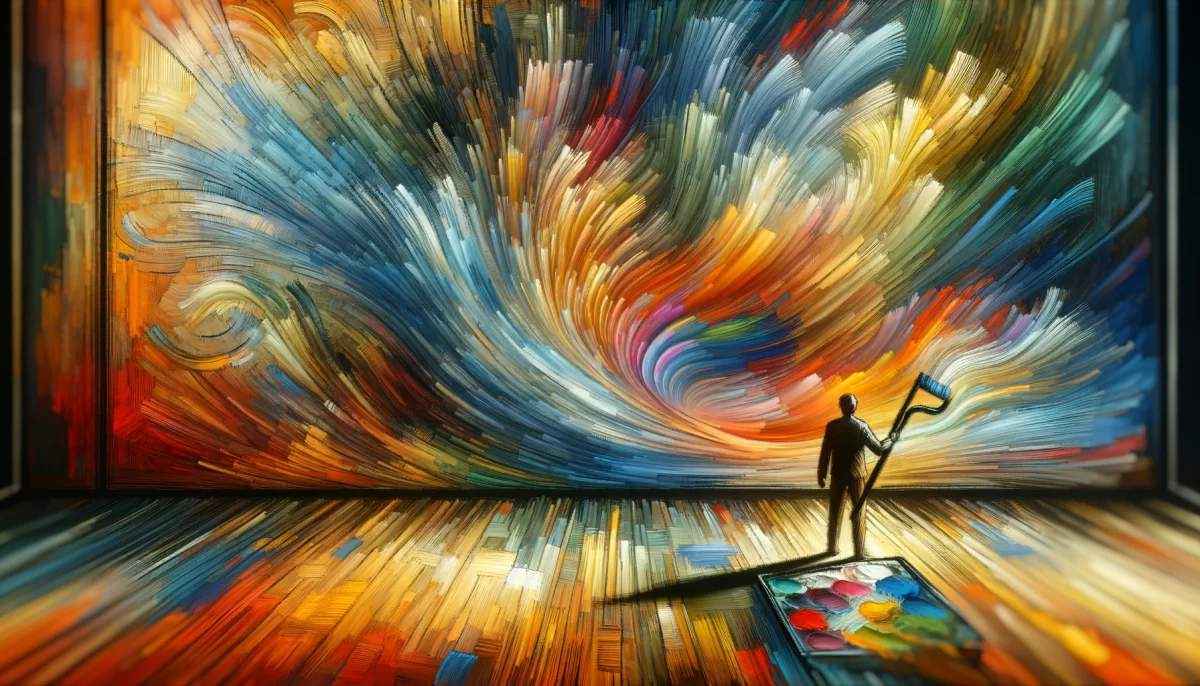
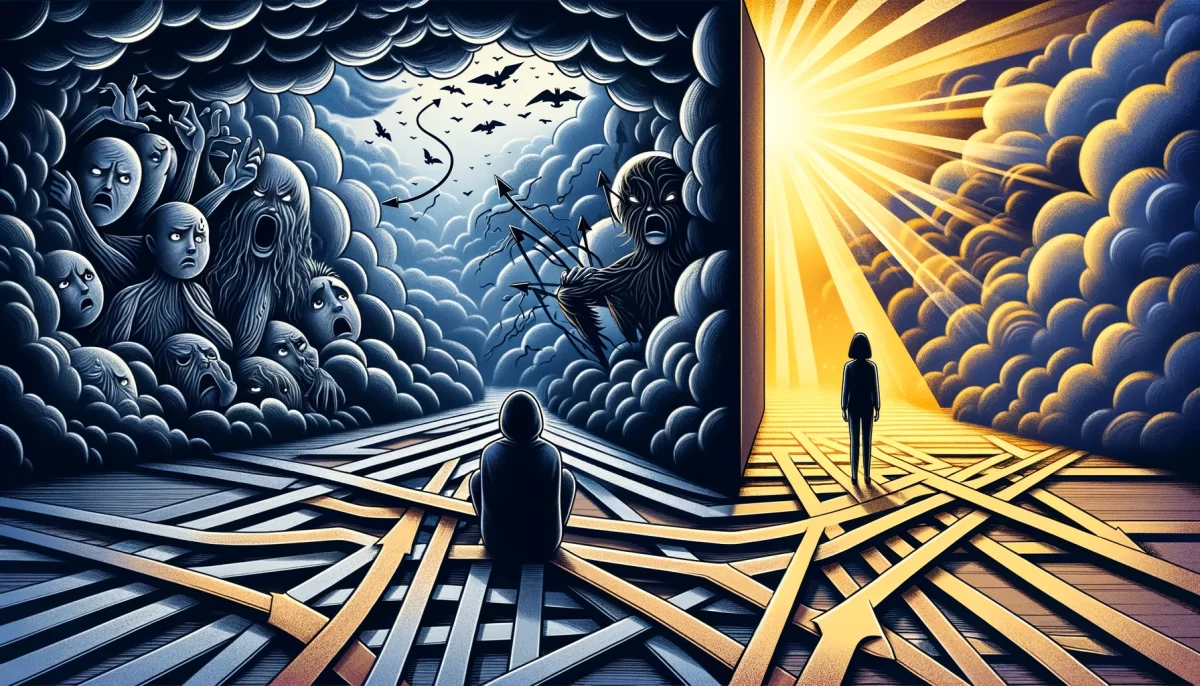
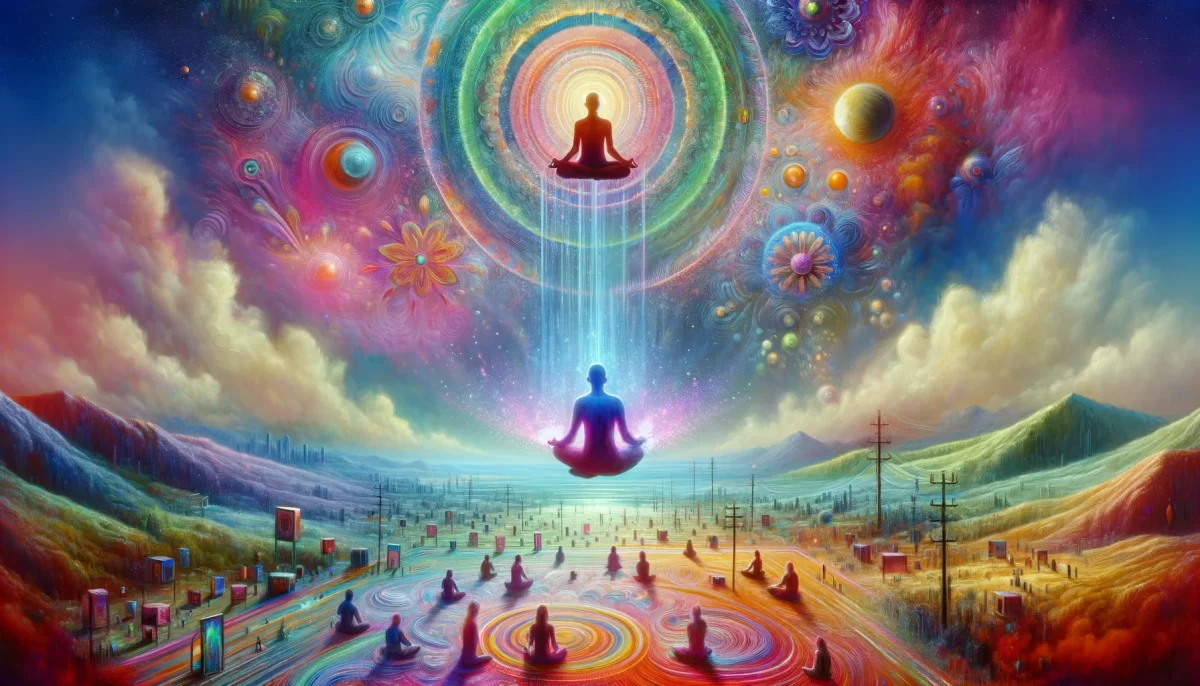



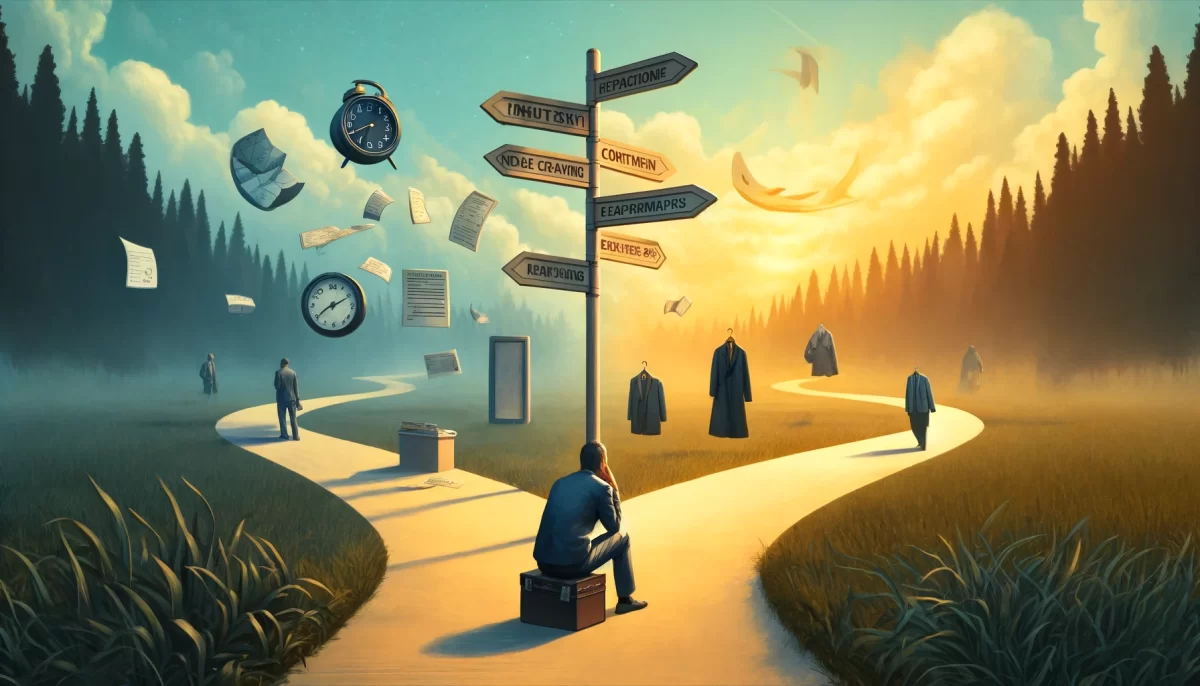



“Taken Away” is a reflective piece of writing that explores the notion of choice and how it relates to our experiences and perceptions in life. The author contemplates the idea that there may not be true choices in the conventional sense, but rather a series of unfolding events and potentials that shape our lives.
The author suggests that when someone claims that a decision has been taken away from them, it prompts them to delve into self-inquiry. They acknowledge that while it may appear that choices exist, they view them as mere appearances, influenced by subjective judgments of what is good, bad, right, wrong, fair, or unjust.
The concept of destiny is introduced, implying that whatever befalls us is part of our predetermined path. This perspective does not absolve individuals of credit or blame, as both are integral components of their personal narratives.
The author then reflects on their own life and experiences, considering the things that seem to have been taken away from them. They contemplate the possibility of finding gratitude in these experiences, or perhaps not, emphasizing that such responses are not choices but rather a natural reaction.
The writing concludes with the acknowledgment that the author does not consciously choose their feelings of compassion or skepticism towards the world or their own life. This suggests a surrender to the unfolding of experiences and emotions, rather than an active decision-making process.
Overall, “Taken Away” invites readers to question the nature of choice, consider the role of destiny in their lives, and reflect on their responses to the events and circumstances they encounter. It prompts a deeper exploration of the interconnectedness between personal narratives, subjective experiences, and the notion of free will.